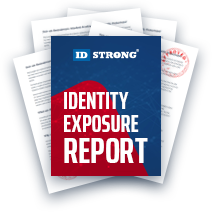How to Donate Wisely to Avoid Charity Scams
Table of Contents
- By David Lukic
- Published: Feb 21, 2022
- Last Updated: Mar 18, 2022
Americans are generous people who donate some $300 million to charity each year. That figure ensures that charity scams will be around forever. As long as there are sympathetic listeners, charity scams will target potential donors with sad stories of helpless victims.
Social media has provided new audiences for charity scams, as well as a sense of legitimacy. People trust what they see online because they believe a gatekeeper checks out the requests for money before they are posted. That's not always true, nor is it possible.
Avoid charity scams by putting a few easy steps in place to determine if they're legitimate. Before you reach for your wallet, ask the following questions:
- Are you sure the person is who they say they are?
- Can the story be verified?
- Are there alternative ways to help them?
- Will a donation of money reach the person most affected?
Instead of acting quickly in response to an emotional request for support, buy yourself some time to think and research the organization. Request a report on the charity's fundraising efforts and administrative overhead costs so that you can make up your mind if it's the best way to use your charitable contribution. If they cannot produce the information, it's possible – and likely – that the request was a scam.
Ways to Recover Money Sent to Scam Charities
It can be challenging to get a donation refunded if you find out that the organization was fraudulent or simply misrepresenting its mission or where funds go. The best ways to protect yourself are:
- Never give cash. Credit card, personal check, and even PayPal donations may be retracted if you act quickly and can demonstrate that the funds were given in error or due to fraud.
- Prevent the situation by researching organizations before donating.
- Report fraudulent activity to the Federal Trade Commission or your state attorney general's office.
- Report the fraud to the platform where you were solicited. Facebook, PayPal, GoFundMe, and Twitter may each investigate, suspend, or refund donations.

Ways to Check for Legitimacy
The Internal Revenue Service, the government agency that collects taxes, is responsible for vetting organizations that want to be tax-exempt charities. These organizations are required to be approved for 501(c)3 status. Anyone can use the IRS tool on its website to search for the charity in question.
In addition, the attorney general's office in each state is responsible for determining if charities are in good standing. Most have searchable databases of legitimate charities for people to check before giving.
Charity Navigator was created to answer questions about how charities use donations. Their website is a comprehensive list of organizations seeking funding. Organizations must file an IRS form 990 to maintain charitable status. Donations to organizations that don't maintain their status with the IRS are not tax-deductible, and donations to some tax-exempt organizations are not deductible from donors' taxes.
Charity Navigator also publishes information such as the salaries of each charity's CEO, which helps individuals decide whether to support it. In addition, Charity Navigator has developed an "advisory" scale to warn potential donors if a charity has been accused of wrongdoing, such as misusing funds.
Police and Fire Fundraisers
Are police running charities? It depends on whom you ask. Phone calls seeking donations for the local police benevolent fund are a fixture in most communities, but callers are rarely police officers. In fact, there are professional fundraising companies that make deals with local police to run phone solicitation campaigns on behalf of law enforcement agencies. A police foundation usually receives a small fraction of the contributions while administrative costs and wages for the phone solicitors eat up the bulk of the donations.
When you receive a call from someone claiming to be raising money for a charity related to the police or fire department, ask a few questions, such as:
- Where does the money go?
- Is the caller actually a member of the police or fire department?
- How much of the funds donated actually reach people in need?
- How is the money managed, and who decides on how it is spent?
Go Fund Me Scams
The social media platform Go Fund Me has been hit by numerous scam artists because it's so easy to set up a page and ask for money. There have been many instances of fraudulent claims on the site, such as a woman pictured with a couple of children asking for money, although the story was fake, and the children weren't hers. Others have been able to claim they're related to victims of high-profile crimes to collect funds for funeral expenses or the victim's children.
The company behind Go Fund Me, which collects a percentage of all donations for its operating costs, has been proactive in stopping fraudulent pages on its site. When they receive complaints about fake pages, they often take the following steps:
- Research to determine the validity of the page.
- Suspend donations until the complaint of fraud is addressed.
- Offer to return contributions to people if fraud is confirmed.
- Remove blatantly fraudulent pages.
Diligence Matters
In addition to faking a charity to scam people out of donations, it's easy to spoof a charity by using a very similar name and betting that people won't research it before contributing. That happened recently when the Black Lives Matter Foundation began receiving donations because its name was similar to the Black Lives Matter social organization. There was no connection-- but reports say there was no fraud either, it was just a matter of donors not checking the difference between the two similarly named organizations. Fortunately, the funds were handled by a third-party organization that helps companies channel employee donations to good causes, and the donations were redirected.
Conclusion
Like phishing scams, charity donation scams prey on people's impulse to do the right thing. Always keep your emotions in check, even when faced with a sad story of a helpless victim. Unfortunately, this sort of fraud will be with us until every potential victim learns to stop and think or do some research before donating.



















































































































